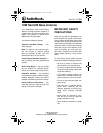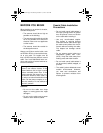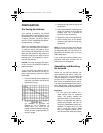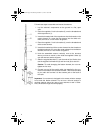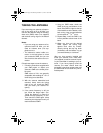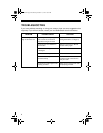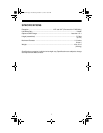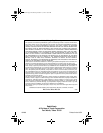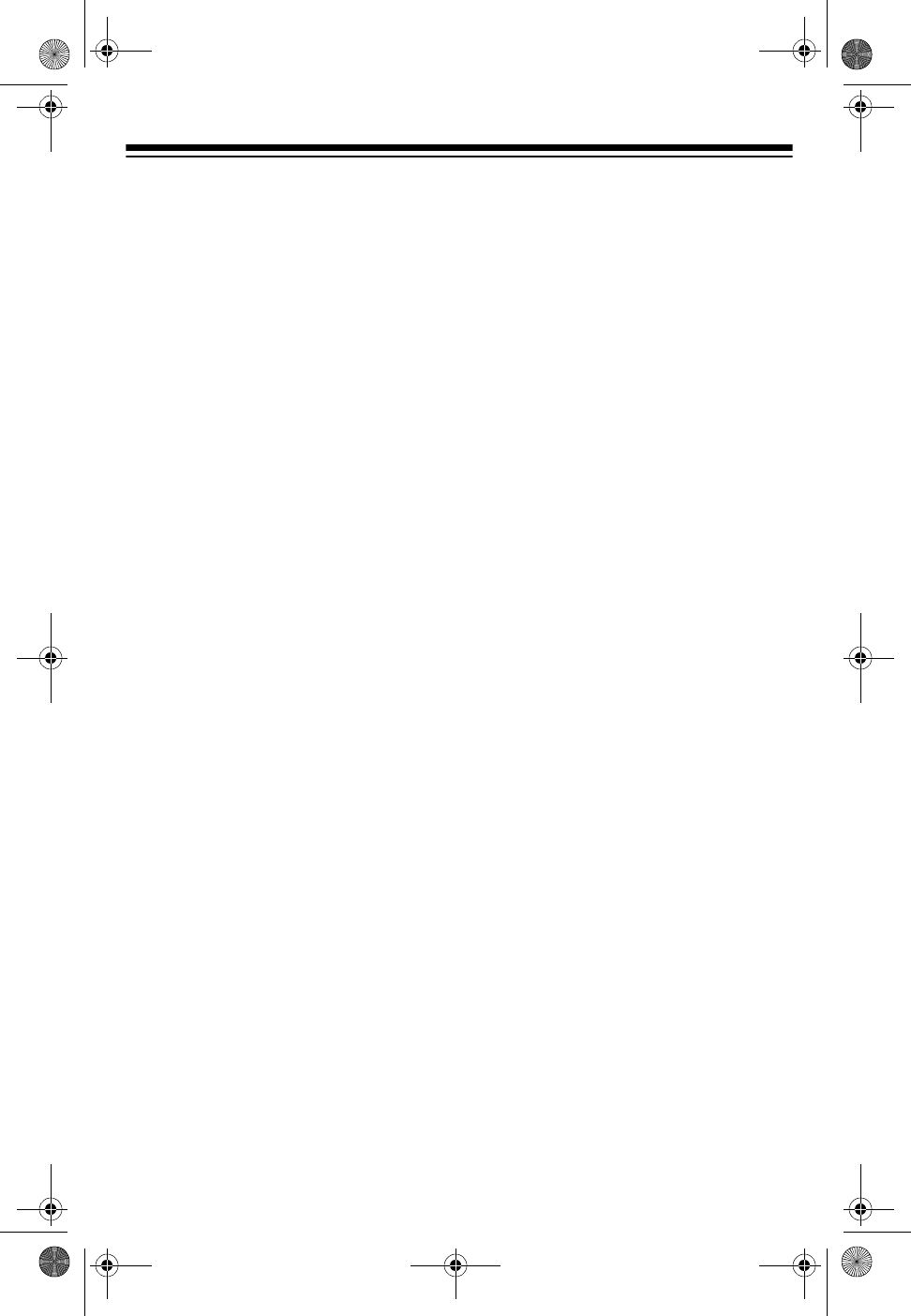
5
TUNING THE ANTENNA
If you are using your antenna at frequen-
cies in the range of 25 to 30 MHz, you
can tune the antenna using an standing-
wave ratio (SWR) meter (not supplied)
and the dual tuning rings on the bottom
element.
Notes:
• If you are using your antenna at fre-
quencies below 25 MHz, you will
need an antenna tuner (not sup-
plied) to tune it.
• The antenna's coaxial cable con-
nector is the best place to check
your antenna's SWR, but you can
also check it at the radio's coax con-
nection.
Follow these steps to tune the antenna.
1. Follow the instructions supplied with
your SWR meter to adjust your
antenna’s SWR to the lowest possi-
ble value.
SWR values of 2.0:1 are generally
acceptable, with readings of 1.5:1 or
lower being more desirable.
2. With the antenna assembled and
mounted, slowly move the tuning
rings up as you check the SWR,
until you reach your desired fre-
quency.
3. If the center frequency is still too
low, follow the steps under “Pre-
Tuning the Antenna” on Page 3 to
shorten the top element by
1
/
2
inch.
Then check the SWR again. Keep
shortening the top element until you
reach the desired SWR.
4. Using an SWR meter, check the
SWR at the top and bottom of the
band. If the SWR is higher at the top
of the band than at the bottom, raise
both tuning rings counterclockwise
at increments of
1
/
4
to
1
/
2
turns.
5. Repeat Step 4 until the SWR is as
low as possible at both ends of the
band.
6. When you have set the desired
SWR, tighten the tuning rings
against each other by simulta-
neously turning the top ring down
(clockwise) and the bottom ring up
(counterclockwise) to lock them.
After you have properly installed and
tuned your antenna, use a watt meter
(not supplied) to test the amount of pow-
er your transmitter is sending to your an-
tenna. If you have properly tuned the
antenna, the meter should show the
transmitter’s maximum output power and
the SWR meter should show very low re-
flected power.
21-869.fm Page 5 Wednesday, October 13, 1999 11:50 AM



